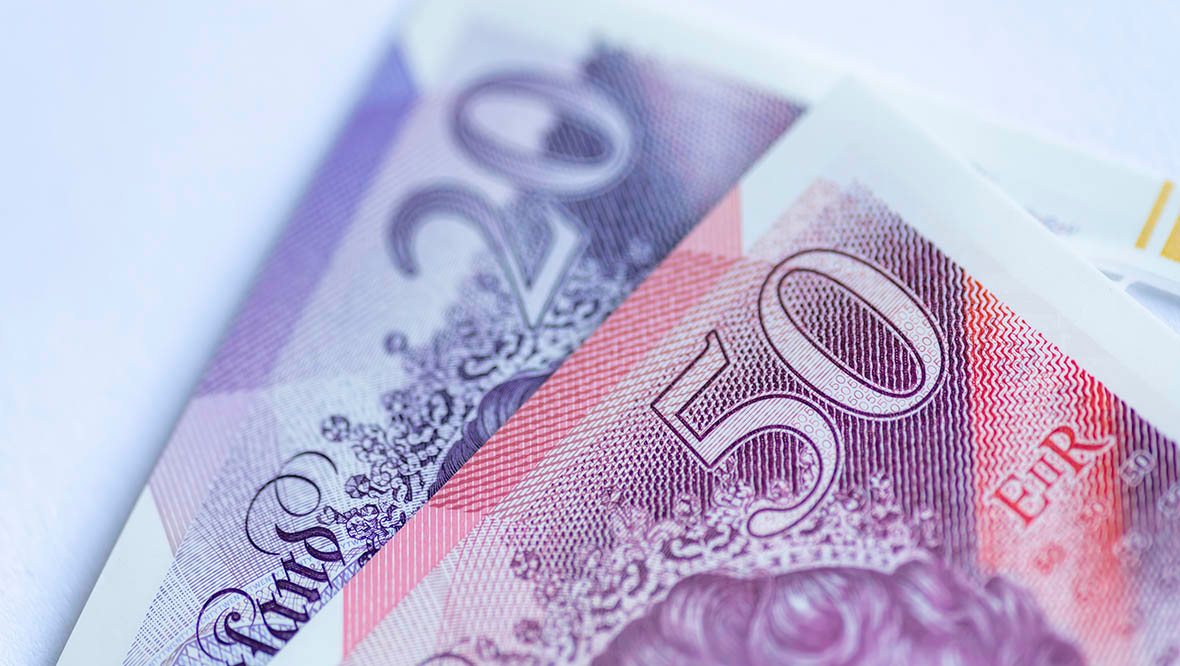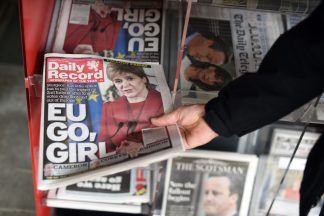Thousands of Scots have been rushing to banks and post offices ahead of paper £20 and £50 bank notes expiring this week.
Paper notes have ceased to be legal tender and new polymer versions are being brought into circulation.
They are stronger, harder to forge and have more security features and are more environmentally friendly.
But the move has reignited debate around the purpose of high denomination bank notes, namely the £50 note.
A review by the Treasury in 2018 stated it was “rarely used” for routine transactions and is instead the preferred payment method of drug lords, human traffickers and tax criminals.
Now, a senior lecturer in economics from the University of Glasgow’s Adam Smith Business School and the Advanced Research Centre has reiterated calls to ditch the £50 note altogether.
Dr Theodore Koutmeridis specialises in law and economics, focusing on crime, inequality and poverty, and believes the high denomination note does “more harm than benefit” to the economy.
It’s not the first time scrapping currency has been used to curb crime; central banks across Europe agreed to stop issuing €500 notes with such an objective in mind in 2016.
Dr Kourtmeridis told STV News: “Those who carry a pack of £50 notes may have a purpose that is not within the legitimate or formal economy.
“Sooner or later we should phase out the £50 note and I’d go as far as saying the £20 note too. Most transactions nowadays are done through plastic or online.
“If someone is carrying money to buy weapons or drugs, you can carry a bag packed with £50 notes. It’s a lot harder if you’re carrying £10 or £5 notes, as you will need five or ten such bags. High denomination notes make their lives easier.
“By banning them we will make it a bit harder for all the smugglers, drug dealers and human traffickers out there. Cash plays a role in facilitating the formation, functioning and flourishing of this dark side of the economy.”

It’s difficult to truly measure the magnitude of the UK’s so-called shadow economy, though it was estimated to be worth around 11.5% of Britain’s GDP in 2016 according to a report from the Institute of Economic Affairs.
It’s not just drugs and illicit trading; the underground economy also includes individuals who have not declared their activity for tax purposes or may not have taxable income due to their activities.
An estimated 3.9% of the British population was also found to be involved in the hidden economy in a report carried out for HMRC in 2017.
“The main incentive for businesses is an underground profit using transactions facilitated by high denomination notes, compared with online payments or plastic,” Dr Koutmeridis explained.
He believes that with the rise of digital transactions, the £50 note could eventually be taken out of circulation, though stresses the importance of introducing other policies such as better policing, inclusive education and an improved labour market to reduce crime.
“I think it will happen in future but it will take some time. It’s started to happen in several countries.
“Criminals are always a step ahead of law enforcement. They will always find a way to continue their activities, whether that’s through the darknet or cryptocurrencies, but many old-fashioned criminals will be forced out of the underground market resulting in a desirable crime reduction at the end of the day. A large part of illegal activity in this country is on the streets in cash.
“Especially after the recent mini-budget announcements which generate a fiscal cliff to climb, phasing out these notes would also increase tax revenue, giving us space to not only reduce crime but also support the most vulnerable from the implications of the cost of living crisis.”
Follow STV News on WhatsApp
Scan the QR code on your mobile device for all the latest news from around the country


 Alphotographic via iStock
Alphotographic via iStock























